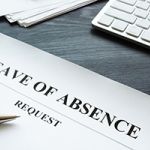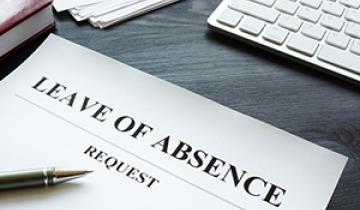Q: Can we require an employee to use their paid time off while on Family or Medical Leave Act leave?
A: To reduce the risk that an employee can return to work after an extended leave and still have paid time off benefits to use, employers may question whether they can require employees to use their paid time off while they are on FMLA leave. For employees protected by either or both the Wisconsin and federal FMLA, the answer can be a bit complex.
Use of Paid Time Off Under Wisconsin FMLA:
Wisconsin FMLA (WFMLA) indicates that an employee can choose to use any available paid time off benefits, but the employer cannot require it. Therefore, the employer cannot mandate the employee use available paid time off benefits for the portion of the leave that the employer is designating WFMLA or both WFMLA and federal FMLA concurrently.
Use of Paid Time Off Under Federal FMLA:
Federal FMLA indicates that an employee can choose to use their available paid time off during FMLA leave, or an employer can require the use of available paid time off benefits during FMLA leave. Therefore, employers can require the use of paid time off benefits for any portion of the leave that is only covered by federal FMLA.
Policy Language:
It is important that the company’s policy contains language that is specific in when and how employees will be expected to use available paid time off benefits while on FMLA leave.
Example 1: An employee has requested leave to bond with their baby. The employee is eligible for six weeks of leave under the WFMLA and 12 weeks under the federal FMLA. For the initial six weeks when the employer is running WFMLA and federal FMLA concurrently, the employer cannot require the use of paid time off. Once the six weeks of WFMLA bonding time is exhausted and the employee is only using federal FMLA, the employer can then require the use of paid time off for the remainder of the leave.
Example 2: An employee has requested leave for their own serious health condition. The employee is eligible for two weeks of leave under the WFMLA and 12 weeks under the federal FMLA. For the initial two weeks when the employer is running WFMLA and federal FMLA concurrently, the employer cannot require the use of paid time off. Once the two weeks of WFMLA are exhausted, the employer can require the use of paid time off for the remainder of the employee’s Federal FMLA leave.
To avoid claims under Wisconsin FMLA, employers need to consider both leave laws prior to requiring the use of paid time off during FMLA leaves.
If you have questions on FMLA protections and obligations, MRA’s 24/7 HR Hotline Advisors are here to help at 866-HR-Hotline (866.474.6854) or email [email protected].





